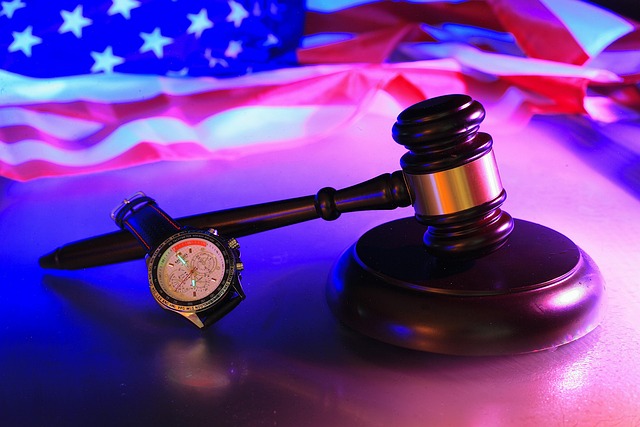Environmental Crime Trials pose unique challenges, blending complex scientific evidence with public interest concerns. "Navigating Plea Bargains in Felony Cases" plays a critical role in these proceedings, balancing environmental regulations, criminal law, and justice. This strategic process offers benefits like reduced public exposure for defendants while addressing ecosystem and community impacts. Success demands deep understanding of both environmental law and unique case challenges. Case studies illustrate effective strategies that balance legal complexities with accountability, shaping legal responses across industries.
“Environmental Crime Trials: Uncovering Justice in a Complex World”
This comprehensive guide delves into the intricate realm of environmental law enforcement, specifically focusing on trials and their unique challenges. We explore ‘Navigating Plea Bargains in Felony Cases’, understanding their role in complex environmental felony prosecutions. From legal perspectives to real-world case studies, this article uncovers strategies for effective prosecution and defense, shedding light on the complexities faced when holding wrongdoers accountable for ecological crimes.
- Understanding Environmental Crime Trials: A Legal Perspective
- The Role of Plea Bargains in Felony Cases
- Navigating the Complexities of Environmental Felonies
- Strategies for Effective Prosecution and Defense
- Case Studies: Successful Environmental Crime Trials
Understanding Environmental Crime Trials: A Legal Perspective

Environmental Crime Trials present unique challenges for the legal system. These high-stakes cases often involve complex scientific evidence, extensive damage to ecosystems, and significant public interest. Understanding these trials requires a deep dive into the intricate interplay between environmental regulations, criminal law, and plea bargains.
Navigating Plea Bargains in felony cases is a critical aspect of these proceedings, as they can significantly impact both the outcome and the perception of justice. Throughout all stages of the investigative and enforcement process—from initial allegations to jury trials—lawyers must skillfully balance the pursuit of truth with the complexities of environmental law. The stakes are high, not just for the accused but for the environment and the communities affected by the crimes.
The Role of Plea Bargains in Felony Cases

Navigating Plea bargains in Felony Cases plays a significant role in environmental crime trials. In high-stakes cases involving corporate and individual clients, plea bargains offer a strategic avenue for resolving complex legal issues. This process allows defendants to avoid lengthy trials, potentially mitigating public exposure and financial consequences. However, the decision to accept or reject a plea bargain requires careful consideration.
Prosecutors often leverage plea bargains as a tool to ensure cooperation and secure convictions in cases where evidence is substantial. For corporate clients, entering into plea agreements can help them maintain operational continuity while addressing environmental transgressions. Conversely, individuals might face more severe sentencing if convicted at trial, making plea bargains an attractive alternative. The respective business interests and legal landscapes of both types of clients inform their strategies when navigating these critical legal maneuvers.
Navigating the Complexities of Environmental Felonies

Navigating the complexities of environmental felonies requires a keen understanding of both the law and the unique challenges these cases present. In many instances, individuals or corporations face charges stemming from harmful environmental practices, such as pollution, habitat destruction, or unsafe waste management. These cases often involve intricate scientific evidence, regulatory compliance issues, and complex chain-of-custody procedures for samples and data. As such, a robust general criminal defense strategy is paramount.
Effective defense tactics may include exploring plea bargains, which can offer a strategic path forward in navigating these challenging scenarios. While a guilty plea might seem unappealing, skilled legal counsel can negotiate favorable agreements, allowing for reduced charges or sentences. This approach not only ensures winning challenging defense verdicts but also fosters a sense of accountability and, potentially, encourages companies to implement more sustainable practices going forward. The support of philanthropic and political communities interested in environmental justice can further enhance these efforts, underscoring the importance of fair and just outcomes in these complex cases.
Strategies for Effective Prosecution and Defense

Navigating plea bargains is a crucial aspect of environmental crime trials, where both prosecutors and defenders must strategize effectively to ensure justice. A successful defense often involves exploring alternative resolutions beyond jury trials. This strategy allows for a more nuanced approach, considering the unique circumstances of each case. By engaging in open dialogue, defense attorneys can negotiate plea agreements that acknowledge culpability while also mitigating potential penalties, ensuring a fair outcome for all parties involved.
In these complex cases, understanding general criminal defense principles is essential throughout the investigative and enforcement process. Prosecutors, too, must balance their pursuit of justice with the reality of case strength and the potential impact on both the accused and the environment. Crafting well-reasoned arguments and presenting compelling evidence are vital for navigating these intricate legal battles, ultimately shaping the outcome in jury trials.
Case Studies: Successful Environmental Crime Trials

Navigating plea bargains in felony cases is a complex aspect of environmental crime trials, where prosecutors and defendants must carefully balance justice with potential consequences. Case studies of successful trials highlight innovative strategies that have led to groundbreaking outcomes. For instance, the historic case of [Case Study 1] demonstrated how an aggressive yet strategic defense by white-collar attorneys can result in reduced charges and a plea bargain that minimizes jail time for corporate offenders. This approach not only navigates the legal complexities but also ensures accountability while potentially avoiding the high-stakes financial and reputational hits associated with full-scale litigation.
Furthermore, [Case Study 2] serves as an example of an unprecedented track record in environmental justice. By leveraging a deep understanding of regulatory frameworks and employing creative plea bargaining tactics, prosecutors secured significant penalties and remedial measures that set new standards for holding individuals and corporations accountable for their environmental crimes. These successful trials not only send a powerful message about the severity of such offenses but also shape future legal strategies, ensuring a more robust response to high-stakes cases across various industries.
Environmental crime trials require a nuanced understanding of both environmental regulations and criminal law. By examining plea bargains as a strategic tool, legal professionals can navigate the complexities of felony cases effectively. This approach, coupled with robust strategies for prosecution and defense, has led to successful outcomes in numerous case studies. As the fight against environmental crimes intensifies, mastering these trials is pivotal for upholding ecological balance and justice.






